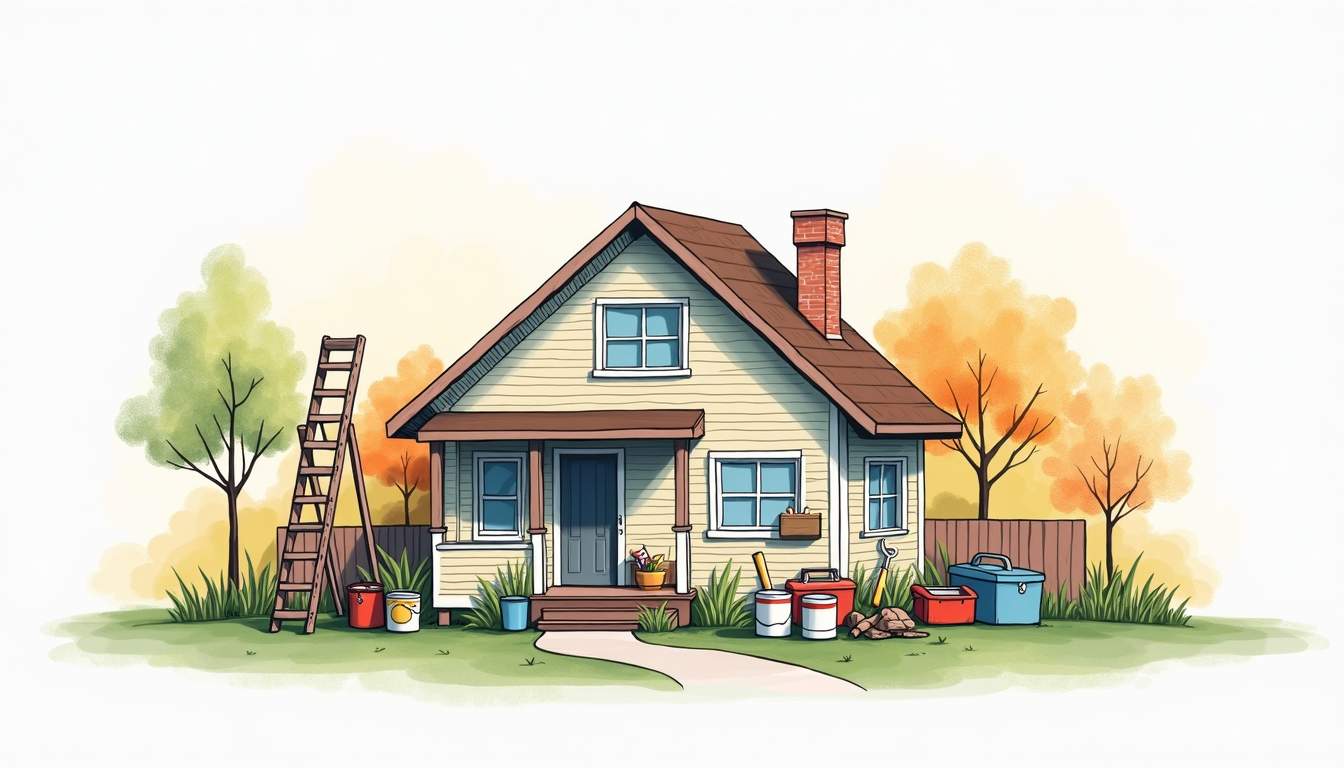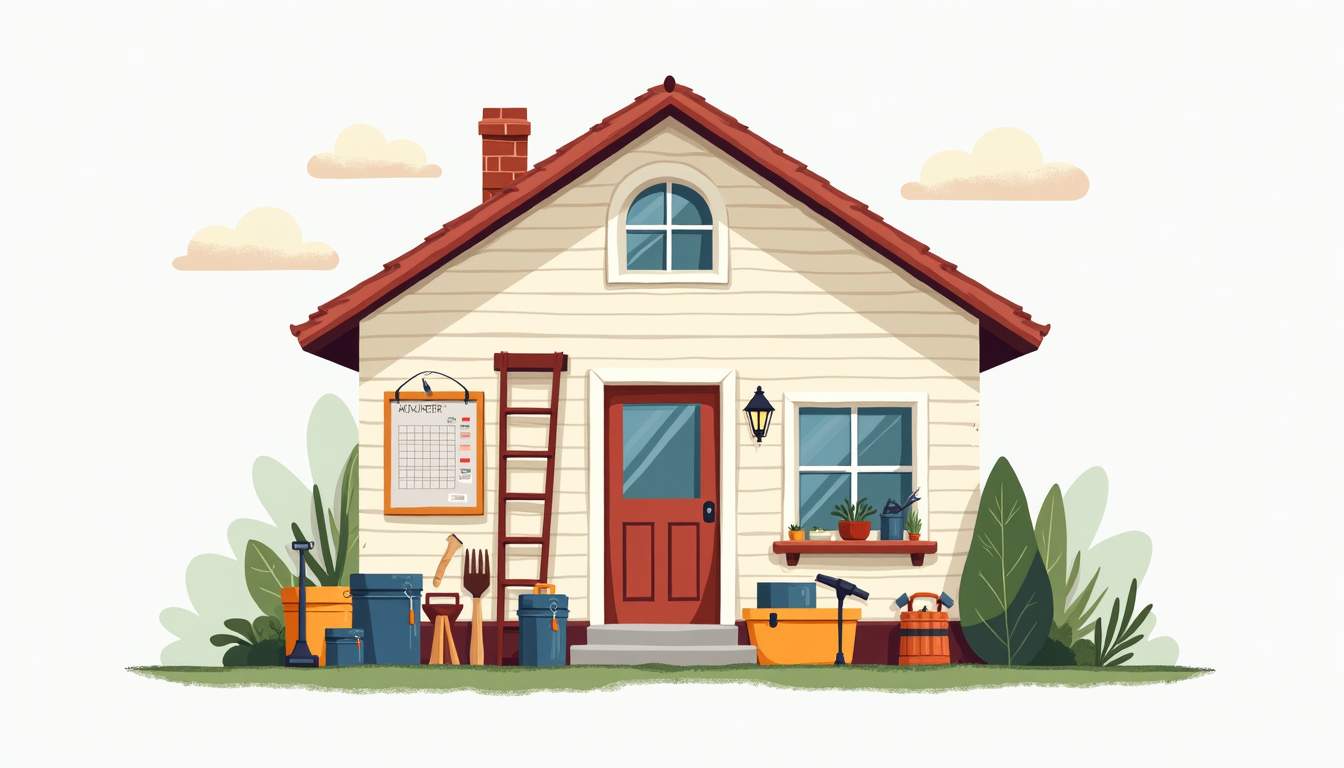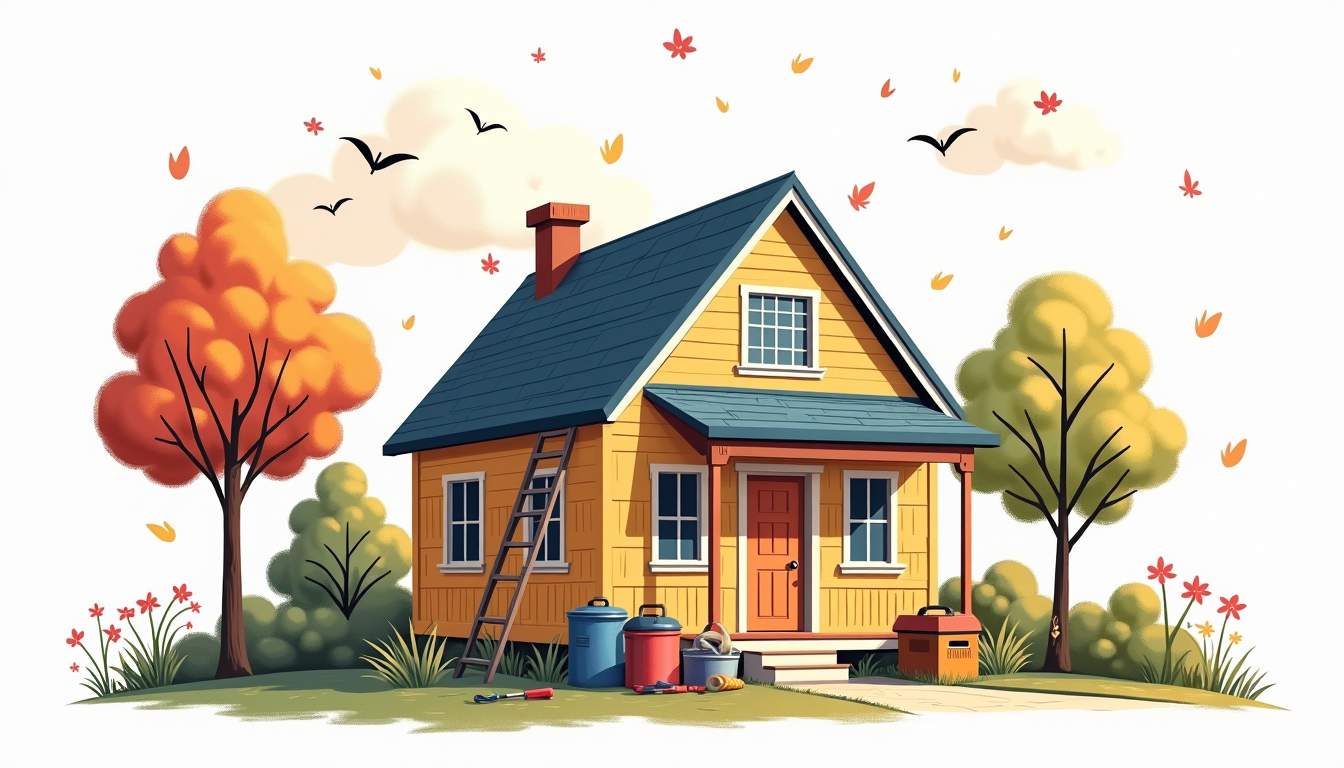
Imagine waking up one morning to find a leaking pipe has flooded your basement, or that a small roof shingle crack has turned into a costly repair. These scenarios aren’t just nightmares-they’re common consequences of skipping regular home maintenance. While it might seem easier to put off repairs or inspections, the truth is that consistent upkeep is one of the smartest financial moves a homeowner can make.
Prevent Small Problems from Becoming Big Expenses
The Cost of Neglect
When a faucet drips or a gutter clogs, it’s tempting to ignore it. After all, it’s just a minor annoyance, right? But small issues often snowball into expensive repairs. A dripping faucet wastes water and increases your utility bills. A clogged gutter can cause water to pool around your foundation, leading to cracks or even basement flooding. These are problems that start small but can quickly drain your wallet.
Regular maintenance catches these issues early. Fixing a leaky faucet or clearing gutters is inexpensive compared to repairing water damage or replacing structural elements. The cost of prevention is almost always less than the cost of repair. Moreover, neglecting small repairs can lead to a decline in your home’s overall value. Potential buyers are often wary of homes that show signs of neglect, which can result in lower offers or extended time on the market.
Examples of Common Preventable Issues
Take HVAC systems, for example. Changing filters every few months and scheduling annual inspections can extend the life of your unit by years. Ignoring this can lead to system failure, forcing you to replace the entire unit prematurely. Additionally, a well-maintained HVAC system operates more efficiently, which can lead to significant savings on energy bills over time. Regular maintenance not only ensures comfort but also enhances air quality, reducing allergens and improving the health of your household. For reliable service, you can visit PS Home Maintenance for expert HVAC care.
Similarly, inspecting your roof for missing shingles or damaged flashing can prevent leaks that cause mold growth and interior damage. These repairs can be costly and disruptive, but regular checks keep your home safe and dry. Beyond just the roof, checking for signs of wear in your siding and windows can also prevent drafts and moisture intrusion. Investing time in these inspections can save you from the headache of extensive repairs and the stress of dealing with mold remediation or structural issues later on. For comprehensive help, make sure to visit PS Home Maintenance for professional inspection and maintenance support.
Protect and Increase Your Home’s Value
Maintenance as an Investment
Your home is likely the largest investment you’ll ever make. Keeping it in good condition protects that investment. Regular maintenance preserves your home’s value and can even increase it over time. By investing in routine upkeep, such as landscaping, plumbing checks, and roof inspections, you not only enhance the aesthetic appeal of your property but also prevent minor issues from escalating into costly repairs. For instance, a small leak in the roof, if left unattended, can lead to significant water damage and mold growth, which could drastically decrease your home’s value.
When it’s time to sell, a well-maintained home attracts buyers and commands a higher price. Buyers are willing to pay more for a house that looks cared for and doesn’t come with a laundry list of repairs. A home with a history of regular maintenance stands out in a competitive market. Additionally, investing in energy-efficient upgrades, such as better insulation or energy-efficient windows, can not only lower your utility bills but also make your home more appealing to environmentally-conscious buyers. These upgrades can provide a substantial return on investment, making your property even more desirable.
How Maintenance Affects Resale
Simple things like fresh paint, clean gutters, and a functioning HVAC system make a huge difference in curb appeal and buyer confidence. On the other hand, homes with visible neglect often sit on the market longer and sell for less. A well-kept exterior, including manicured lawns and tidy landscaping, creates a welcoming first impression that can entice potential buyers before they even step inside. Furthermore, investing in modern fixtures and appliances can also enhance the overall perception of your home, making it feel more updated and move-in ready.
Even if you’re not planning to sell soon, maintaining your home keeps your options open. Life changes, and when the time comes, you’ll be glad your home is ready. Regular maintenance not only prolongs the life of your home’s systems but also ensures that it remains a safe and comfortable space for you and your family. By staying proactive about repairs and updates, you can enjoy peace of mind knowing that your investment is secure and that your home will be a source of pride for years to come. Additionally, a well-maintained home can provide a sense of stability and comfort, fostering a nurturing environment for family gatherings and cherished memories.
Save Money on Energy Bills and Repairs
Efficiency Through Maintenance
Regular upkeep doesn’t just prevent damage—it also improves your home’s efficiency. Sealing drafts, maintaining insulation, and servicing heating and cooling systems help your home use energy more effectively. This means lower utility bills every month.

For example, dirty air filters make your HVAC system work harder, consuming more electricity. A well-maintained system runs smoothly and uses less energy. Similarly, sealing cracks around windows and doors keeps warm or cool air inside, reducing the need for constant heating or cooling. Additionally, checking and cleaning your ductwork can significantly enhance airflow, ensuring that your home maintains a consistent temperature without overworking your systems.
Long-Term Savings Add Up
These small savings might not seem like much individually, but over time they add up. Consistent maintenance reduces wear and tear, preventing costly breakdowns and extending the life of your home’s systems and components.
Think of it as a cycle: maintenance saves energy, which saves money, which means you can invest more in your home or other priorities. Furthermore, by investing in energy-efficient appliances and smart home technology, you can further enhance your savings. Smart thermostats, for instance, learn your habits and adjust heating and cooling accordingly, ensuring that energy is not wasted when you’re not home. Over time, these investments can lead to significant reductions in energy consumption, allowing you to enjoy a more comfortable living environment without the burden of high bills.
Maintain Safety and Comfort
Preventing Hazards
Home maintenance isn’t just about money-it’s about safety. Faulty wiring, gas leaks, mold growth, and structural damage can pose serious health risks. Regular inspections and repairs help identify and fix these hazards before they become dangerous.
For instance, smoke detectors and carbon monoxide alarms need battery checks and replacements to function properly. Roof inspections can reveal weak spots that might collapse under heavy snow. Plumbing maintenance prevents leaks that could lead to mold, which affects indoor air quality and health. Additionally, ensuring that your home’s electrical system is up to code can prevent potential fire hazards. Overloaded circuits and outdated wiring can lead to short circuits, which not only pose a risk of fire but can also damage your appliances and electronics.
Furthermore, keeping your home’s exterior in good condition is equally important. Regularly clearing gutters and downspouts prevents water damage and reduces the risk of ice dams forming in colder months. This simple task can save homeowners from costly repairs and maintain the integrity of their home’s foundation. Also, inspecting and maintaining outdoor areas, such as walkways and staircases, can prevent slips and falls, especially during inclement weather.
Creating a Comfortable Living Environment
Comfort is another key benefit of maintenance. A well-maintained home stays warmer in winter and cooler in summer, with fewer drafts and leaks. Plumbing and electrical systems work reliably, and appliances last longer.
When everything functions as it should, your home feels like a safe, comfortable haven rather than a source of stress. Regular maintenance can also enhance the aesthetic appeal of your living space. Fresh paint, well-kept landscaping, and clean windows not only improve the appearance of your home but can also elevate your mood and overall well-being. Creating a pleasant environment encourages relaxation and can even boost productivity, making it easier to unwind after a long day or focus on tasks during work-from-home hours.
Moreover, investing in energy-efficient upgrades, such as better insulation or energy-efficient windows, can greatly enhance your comfort while reducing utility bills. These upgrades not only contribute to a more consistent indoor temperature but also promote sustainability, making your home more environmentally friendly. In this way, regular maintenance not only safeguards your home but also enriches your living experience, transforming it into a sanctuary that reflects your personal style and values.
How to Make Home Maintenance Manageable
Create a Maintenance Schedule
One of the biggest reasons people neglect home maintenance is feeling overwhelmed. The key is to break it down into manageable tasks throughout the year. Create a checklist or calendar that includes seasonal and annual tasks like gutter cleaning, HVAC servicing, roof inspections, and filter changes.

Setting reminders or using home maintenance apps can help keep you on track. Tackling small jobs regularly prevents the need for big, stressful projects later.
Know When to Call a Professional
Not every task needs to be DIY. Some maintenance requires expert knowledge and tools. Electrical work, major plumbing repairs, roof replacements, and pest control are best left to professionals.
Hiring trusted contractors for these jobs ensures the work is done safely and correctly, saving you from costly mistakes and liability issues.
Budget for Maintenance
Set aside money each month specifically for home maintenance. Experts recommend budgeting about 1% to 3% of your home’s value annually for upkeep and repairs. This fund helps you handle unexpected issues without financial strain.
Think of it as paying yourself to protect your investment. When you have a maintenance budget, you’re less likely to delay necessary repairs.
Conclusion
Skipping regular home maintenance is like ignoring your car’s oil changes or dentist appointments. It might save time and money now, but it leads to bigger problems down the road. By staying proactive, you protect your home’s value, save money on repairs and energy, and ensure a safe, comfortable living space.

Investing a little time and effort into home maintenance pays off in peace of mind and financial security. The smartest investment you can make is one that keeps your home-and your life-running smoothly.